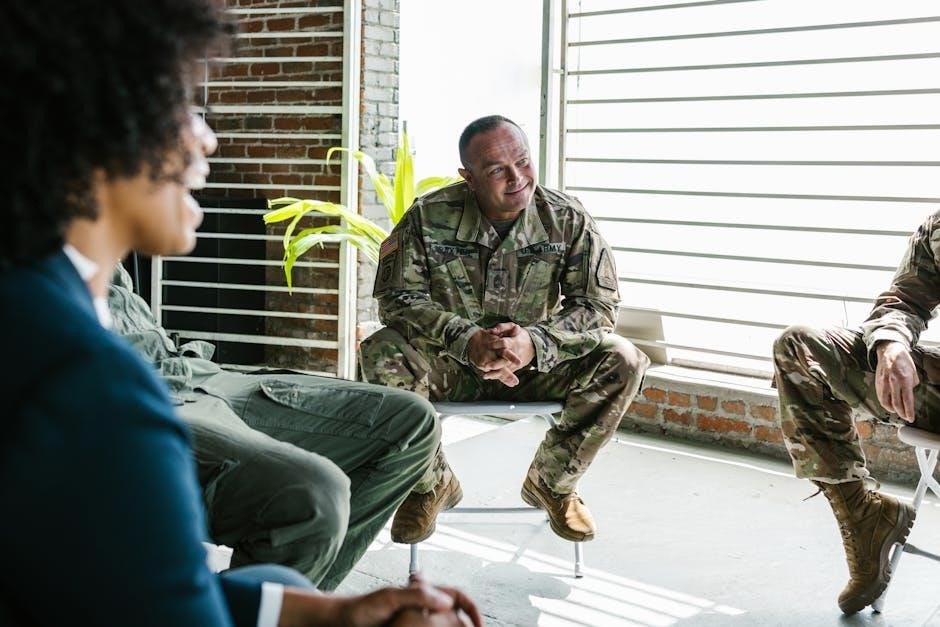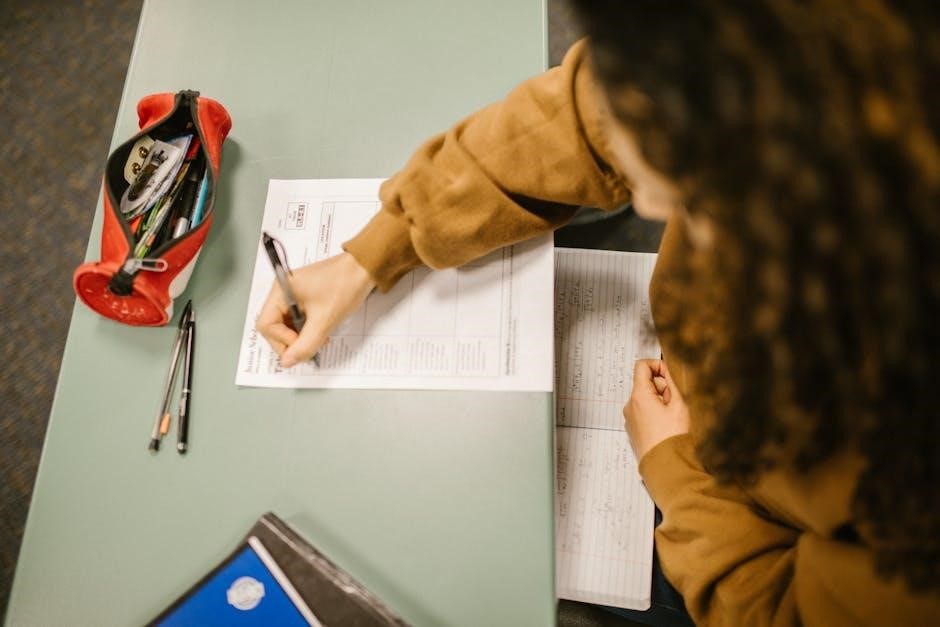
heroes of the fourth turning pdf
Heroes of the Fourth Turning is a thought-provoking play by Will Arbery, exploring themes of faith, conservatism, and identity through the reunion of Catholic intellectuals in Wyoming.

1.1 Overview of the Play and Its Relevance
Heroes of the Fourth Turning is a Pulitzer Prize finalist play that explores the complexities of faith, conservatism, and identity. Set in Wyoming after the Charlottesville riot, it follows four Catholic intellectuals reuniting at their alma mater. The play delves into their personal and political struggles, offering a nuanced look at modern America’s cultural divides. Its relevance lies in its ability to spark conversations about religion, politics, and societal tensions.
1.2 Historical Context of the Fourth Turning
The Fourth Turning, a concept from Strauss and Howe’s theory, represents a cyclical crisis phase in American history, recurring every 80 years. It encapsulates periods of significant upheaval, such as the Civil War and World War II, where societal structures are challenged and transformed. The current Fourth Turning, beginning around 2005, reflects modern crises like political polarization and economic instability, shaping the play’s backdrop of cultural and ideological conflict.

The Concept of the Fourth Turning
The Fourth Turning, a theory by Strauss and Howe, describes an 80-year cyclical pattern in American history, with four recurring phases: growth, maturation, entropy, and rebirth.
2.1 The Book by William Strauss and Neil Howe
The Fourth Turning: An American Prophecy, written by William Strauss and Neil Howe, explores an 80-year cyclical pattern in American history. The book, published in 1997, outlines four recurring phases: growth, maturation, entropy, and rebirth. These turnings reflect societal transformation, offering insights into historical crises and renewal. The theory has gained prominence in understanding modern America’s trajectory, influencing works like Heroes of the Fourth Turning.
2.2 The Four Turnings as a Historical Framework
The Four Turnings represent an 80-year cyclical pattern in history, consisting of growth, maturation, entropy, and rebirth. This framework, as outlined by Strauss and Howe, provides a structured approach to understanding historical progression and societal transformation. Each turning signifies a distinct phase, offering insights into how crises and renewal shape the collective experience of generations and nations, creating a seasonal rhythm of history.
The Play “Heroes of the Fourth Turning”
Heroes of the Fourth Turning, a Pulitzer Prize finalist by Will Arbery, explores the reunion of four Catholic intellectuals in Wyoming, delving into faith, conservatism, and identity amidst a nation in crisis.
3.1 Plot Summary and Key Themes
Heroes of the Fourth Turning follows four Catholic intellectuals reuniting in Wyoming after the Charlottesville riot. The play explores their tensions over faith, conservatism, and identity, revealing deep ideological divides and personal struggles. Set against a backdrop of political unrest, the story delves into their conflicting views on race, religion, and America’s future, offering a poignant reflection on modern societal fractures and moral dilemmas.
3.2 The Role of Catholic Intellectuals in the Story
The play centers on four Catholic intellectuals whose reunion sparks intense debates about faith, politics, and identity. Their Catholic upbringing and intellectual pursuits shape their perspectives, creating tension as they grapple with conservatism and societal expectations. The characters’ religious beliefs influence their moral stances, driving the narrative’s exploration of ideological conflicts and personal growth amidst a fractured America.
Themes Explored in the Play
Heroes of the Fourth Turning delves into faith, conservatism, and identity, exploring the political and ideological divides among Catholic intellectuals during a tense reunion in Wyoming.
4.1 Faith and Conservatism
Heroes of the Fourth Turning deeply explores the intersection of faith and conservatism, as Catholic intellectuals navigate their beliefs amidst political and personal turmoil. Set in Wyoming, the play highlights how traditional values shape their identities and worldviews, creating tension and introspection. Faith serves as both a unifying force and a source of conflict, reflecting the broader cultural divides in America.
4.2 Identity and Political Divide
Heroes of the Fourth Turning examines how identity and politics collide, particularly among young Catholic intellectuals. The play delves into the fractures caused by differing views on race, religion, and conservatism. Set against the backdrop of a chaotic America, it portrays characters grappling with their sense of self amidst a polarized society, revealing the emotional and ideological tensions that define modern discourse.
4.3 Reunion and Reflection
Heroes of the Fourth Turning centers on a reunion of four friends at their Catholic alma mater in Wyoming. Their gathering sparks introspection, as they confront past ideals and current realities; The play uses this setting to explore themes of nostalgia, regret, and the search for meaning, offering a poignant look at how time and circumstance reshape personal and collective identity.
Stage Adaptations and Performances
Heroes of the Fourth Turning has been staged in various theaters, with notable productions at Rec Room and Studio Theatre, receiving acclaim for its intense dialogue and character dynamics.
5.1 Notable Productions and Reviews
Heroes of the Fourth Turning has garnered critical acclaim across various productions. Notable runs include the Rec Room’s staging, directed by Sophia Watt, and Studio Theatre’s production, praised for its intense dialogue and character depth. The play’s Canadian premiere, by The Howland Company and Crows Theatre, further highlighted its relevance. Reviews often commend its bold exploration of conservatism, faith, and identity, resonating deeply with audiences; Its thought-provoking nature has solidified its place in contemporary theater.
5.2 The Play’s Reception in Different Theaters
Heroes of the Fourth Turning has received varied receptions across theaters. In Wyoming, audiences praised its nuanced portrayal of Catholic intellectuals, while urban theaters noted its provocative dialogue. The Rec Room production in Houston was hailed for its bold staging, drawing diverse reactions. Similarly, Studio Theatre in Washington, D.C., saw audiences divided yet engaged. Its Canadian premiere sparked reflective discussions, highlighting its universal themes of faith and identity. The play’s ability to evoke strong emotions underscores its relevance in contemporary theater.

Cultural and Social Significance
Heroes of the Fourth Turning offers a profound exploration of faith, conservatism, and identity, reflecting America’s political and cultural divide while sparking essential conversations about unity and crisis.
6.1 The Play’s Relevance in Modern America
Heroes of the Fourth Turning resonates deeply with modern America by addressing its political and cultural divides. Set against the backdrop of a post-Charlottesville America, the play delves into themes of faith, conservatism, and identity, offering a timely reflection of the nation’s struggles with unity and self-definition. Its exploration of crisis and renewal aligns with the cyclical nature of history, making it a poignant commentary on contemporary societal tensions.
6.2 Discussions on Race, Religion, and Politics
Heroes of the Fourth Turning ignites provocative discussions on race, religion, and politics, set against the backdrop of a post-Charlottesville America. The play explores the intersections of Catholic faith and conservatism, delving into racial tensions and political ideologies. Through the characters’ debates, it challenges audiences to confront societal divides, offering a raw yet introspective look at America’s ongoing struggles with identity, morality, and unity in a fractured world.

The Connection Between the Book and the Play
Heroes of the Fourth Turning reflects the Fourth Turning theory, depicting a crisis era of societal upheaval and division, as outlined in Strauss and Howe’s prophetic historical framework.
7.1 How the Play Reflects the Fourth Turning Theory
Heroes of the Fourth Turning mirrors the cyclical crisis of the Fourth Turning, depicting a nation in turmoil post-Charlottesville. The play explores themes of societal upheaval, ideological division, and the struggle for meaning, aligning with Strauss and Howe’s theory of historical cycles. Through its characters’ conflicts, it reflects the generational tension and existential questions central to the Fourth Turning’s prophetic framework, offering a dramatic lens on America’s cultural and political unraveling.
7.2 The Role of Crisis in Shaping Heroes
The play underscores how crises, like the Charlottesville riot, catalyze introspection and self-discovery among its characters. Set against a backdrop of societal turmoil, the story explores how ideological and emotional struggles define heroism. Through their reunion, the characters confront their beliefs, revealing the transformative power of crisis in shaping individual and collective purpose, aligning with the Fourth Turning’s emphasis on upheaval as a catalyst for change and renewal.
The Author’s Perspective
Will Arbery, a Pulitzer Prize finalist and writer for Succession, crafted Heroes of the Fourth Turning to explore faith, identity, and conservatism through a reunion of Catholic intellectuals in Wyoming.
8.1 Will Arbery’s Vision and Inspiration
Will Arbery’s vision for Heroes of the Fourth Turning stems from his exploration of faith, identity, and conservatism. Drawing from his Catholic upbringing and the cultural divide in America, Arbery crafted a story that delves into the complexities of political and religious ideologies. His inspiration lies in creating nuanced, multidimensional characters that reflect the struggles of modern conservatism, blending personal and societal crises to provoke thought and reflection among audiences.
8.2 The Playwright’s Background and Other Works
Will Arbery, a playwright known for his nuanced exploration of faith and identity, gained recognition with Heroes of the Fourth Turning, a finalist for the Pulitzer Prize. His work often delves into the complexities of conservatism and religion, reflecting his Catholic upbringing. Arbery’s other works include contributions to Succession, showcasing his ability to weave compelling narratives across mediums, from theater to television, and explore themes of power, morality, and societal divides.
The Play’s Impact on Audiences
Heroes of the Fourth Turning leaves audiences moved and reflective, offering a haunting yet clarifying look at Americas divide through its politically charged, thought-provoking dialogue and emotionally charged storytelling.

9.1 Audience Reactions and Emotional Responses
Audiences of Heroes of the Fourth Turning often leave deeply moved, reflecting on its haunting portrayal of Americas cultural divide. The plays politically charged dialogue resonates strongly, evoking emotions ranging from discomfort to empathy. Its unflinching exploration of faith, identity, and conservatism sparks intense discussions, leaving viewers both unsettled and thoughtfully engaged;

9.2 The Play’s Contribution to Contemporary Theater
Heroes of the Fourth Turning stands as a significant work in contemporary theater, offering a fearless exploration of faith, politics, and identity. Its unflinching dialogue and nuanced character development challenge audiences to confront societal divides. As a Pulitzer Prize finalist, it has sparked critical acclaim and necessary conversations, solidifying its place in modern theatrical discourse and inspiring new ways to address polarizing themes.
Heroes of the Fourth Turning leaves a lasting impact, offering a profound reflection on faith, identity, and societal divides. Its thought-provoking narrative ensures its relevance in contemporary theater.
10.1 The Enduring Legacy of “Heroes of the Fourth Turning”
Heroes of the Fourth Turning has cemented its place in contemporary theater, offering a gripping exploration of faith, conservatism, and identity. Its unflinching dialogue and nuanced characters resonate deeply, sparking essential conversations about America’s cultural divide. The play’s Pulitzer Prize recognition underscores its impact, ensuring its themes of reunion, reflection, and societal crisis remain relevant for years to come.
10.2 Final Thoughts on the Play and Its Themes
Heroes of the Fourth Turning masterfully explores the complexities of faith, identity, and political division through the reunion of Catholic intellectuals. Its intense dialogue and emotional depth provoke reflection on America’s cultural fractures. As a Pulitzer finalist, the play underscores the power of theater to confront societal crises, offering a poignant commentary on modern America’s struggles with race, religion, and political polarization.
Related Posts

acls exam version c answers pdf
Get ACLS Exam Version C answers in PDF format. Free study guide, practice questions, and instant download. Prepare smarter, not harder!

explaining adhd to a child pdf
Learn how to explain ADHD to children in a simple, engaging way. Download our free PDF guide to help kids understand and manage their ADHD.

john paul jackson books pdf free download
Access John Paul Jackson’s books for free in PDF. Instantly download his spiritual teachings and revelations.